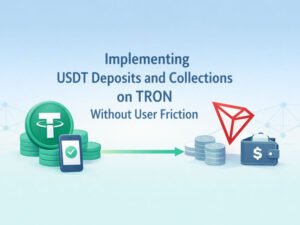The expansion of online education has changed the face of higher education, as students can study online from anywhere in the world, regardless of their geographic location. For those who are on their way to becoming a CPA in the U.S., the question now becomes, “Are online degrees from international universities acceptable for CPA licensure?”
The answer is within a structured review process referred to as CPA education evaluation where assessments are made on whether or not the academic qualification regardless of format or origin, satisfies the education requirements set out by the U.S. jurisdictions.
Understanding How CPA Requirements Are Defined
In the United States, CPA licensure depends upon the rules of the state boards. Requirements vary by jurisdiction, but are generally based on the core framework of what are known as the 3Es:
Education: Candidates must have successfully completed the appropriate educational program that typically includes education in accounting, auditing, tax, and business. A bachelor’s degree with at least 150 semester hours and coursework through graduate-level is required for most state boards. Academic quality, accreditation, and relevance to the field of accounting are key consideration—whether the degree is obtained in person or online.
Examination: Candidates are required to take and pass the Uniform CPA, a national exam consists of four sections: Auditing and Attestation (AUD), Business Analysis and Reporting (BAR), Financial Accounting and Reporting (FAR) and Taxation and Regulation (REG). The exam assesses both technical knowledge and application skills and is uniform throughout all U.S. jurisdictions.
Experience: Candidates are required to gain a certain amount of supervised experience in accounting, normally 1-2 years of duration. The experience must be attested and at the requirements of the selected jurisdiction. It is fundamental in developing work readiness and professionalism.
Of these 3 pillars, education can be the most challenging in many situations, especially for candidates with non-U.S. or online degrees. This is where CPA education evaluation come in.
CPA Education Evaluation: Purpose and Process
For candidates with non-U.S. or online credentials may use a CPA education evaluation to translate their credentials to U.S. licensing requirements. The process requires careful review of transcripts and supporting documents in establishing equivalence of U.S. standards.
Evaluators assess:
- The coverage of required subjects
- Credit hour totals
- The accreditation and legitimacy of the institution
Online degrees are not automatically disqualified. They do, however, need to be academically rigorous, have instructional quality, and be subject aligned. Some may require course descriptions, syllabi, or evidence that instruction was delivered in certain ways to confirm that nontraditional programs have the necessary structure and quality.
Candidates must follow these guidelines in order to successfully maneuver through this process:
Select your jurisdiction early: Licensure requirements, including which evaluators are accepted, are unique in each U.S. states.
Gather official academic documents: Sealed documents must come directly from the issuing institution. Foreign-language documents usually need to be translated by a certified translator.
Start early: CPA education evaluation can take a few weeks due to complexity and volume. The earlier you begin the less time you waste.
Prepare supporting documents: Candidates may need comprehensive course information, especially for online courses or for courses completed in foreign education systems.
Taking the CPA education evaluation with accuracy and readiness is a key to understand your credentials and give you deserved credit.
Online Degrees: Factors That Matter
When it comes to online degrees, there’s a lot to consider. Key factors include:
Accreditation. The institution should be accredited by a recognized authority of the home country. Accreditation is one of the ley factors for establishing the credibility of an education.
Mode of delivery. Fully online programs are on the rise, but some states have higher review standards for these than blended or face-to-face programs. It’s important to be transparent about how instruction was delivered.
Curriculum and Credit Hours. Coursework shall be in the subject of accounting and other business-related subjects. Credit minimums must be satisfied, associated with the 150-semester hour rule.
State-by-State Variations in CPA Credential Evaluation
Evaluation procedures differ across jurisdictions. Some state boards conduct their own reviews, while others appoint outside providers. The types of documentation accepted, evaluation approach, and approval timeline differs from state to state.
As there is no uniform standard for how evaluations are conducted in any given state, candidates should review the standards of the board they are applying to. It helps them to make sure that their academic resources and their selected evaluation approach align with licensure expectations.
Final Thoughts
Online degrees are eligible for CPA licensure, as long as they meet state requirements. CPA education evaluation can assist in confirming that equivalency, and with the appropriate documents and advance preparation, candidates from around the world can navigate the path to U.S. CPA certification with assurance.










